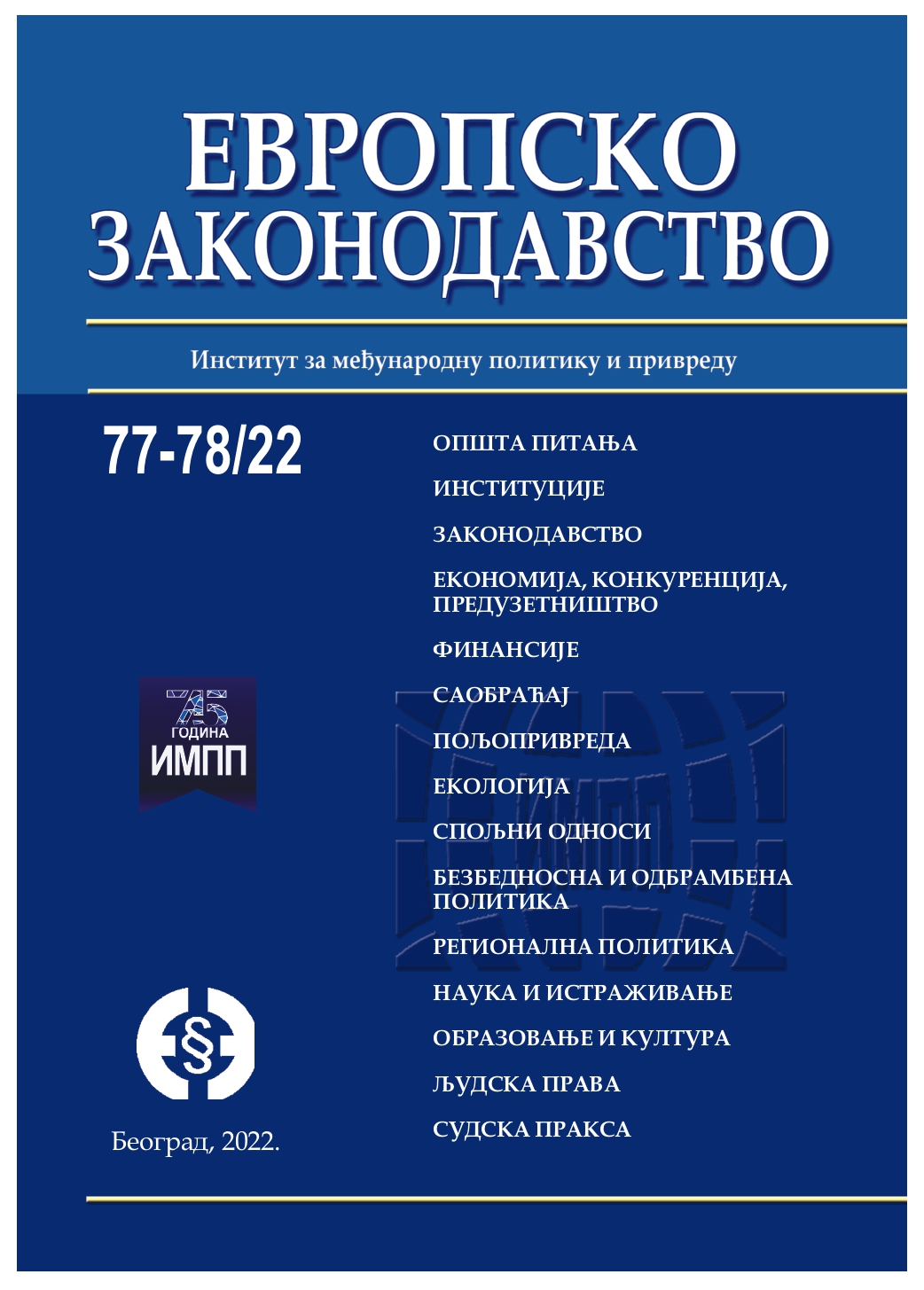Визија о Европској унији као геоекономском и геополитичком актеру
Vision on the European Union as a geoeconomic and geopolitical actor
Author(s): Goran NikolićSubject(s): EU-Legislation
Published by: Институт за међународну политику и привреду
Keywords: EU;geopolitics;trade;technology;sanctions;strategy
Summary/Abstract: Starting from 2016, the United States has been increasingly perceived as an unreliable ally in the European Union (EU). Since then, the EU has launched its own defence initiatives. With Biden’s coming to power in the United States, fears have grown that a new political constellation could weaken NATO and thus the EU. With the "strategic autonomy" initiative, the EU continued improving its defence capabilities at the cost of some divergence from the United States. In the last few years, the EU has often been the target of its economic rivals (e.g., through various bans on imports of EU products). Hence, Brussels had to participate more actively in terms of the security implications of Chinese investments, as well as the unilateral financial sanctions of the US (which affect companies located in the EU). New regulations at the EU level indicate that Brussels is trying to respond to the challenges of real politics and that foreign trade (where the EU's main power is located) is becoming more "armed" with the aim of strengthening the EU's geopolitical role globally. The more active engagement of the Union can be seen in the fact that the EU currently has as many as 44 different sanctions regimes, covering as many as 32 countries. Namely, despite the fact that the EU does not have common military or intelligence instruments, its significant common market makes sanctions an attractive instrument for exercising geopolitical influence. Recognizing the potential risk posed by technological competition between great powers, the EU has intensified multilateral cooperation to make significant progress in technology, taxation, trade, mobility, and security. Through multilateral and bilateral negotiations with key actors inworld politics, the EU has raised hopes that by cooperating with its allies and strategic rivals, it could achieve its global ambitions in the future.
Journal: Европско законодавство
- Issue Year: 2022
- Issue No: 77-78
- Page Range: 13-31
- Page Count: 19
- Language: Serbian

